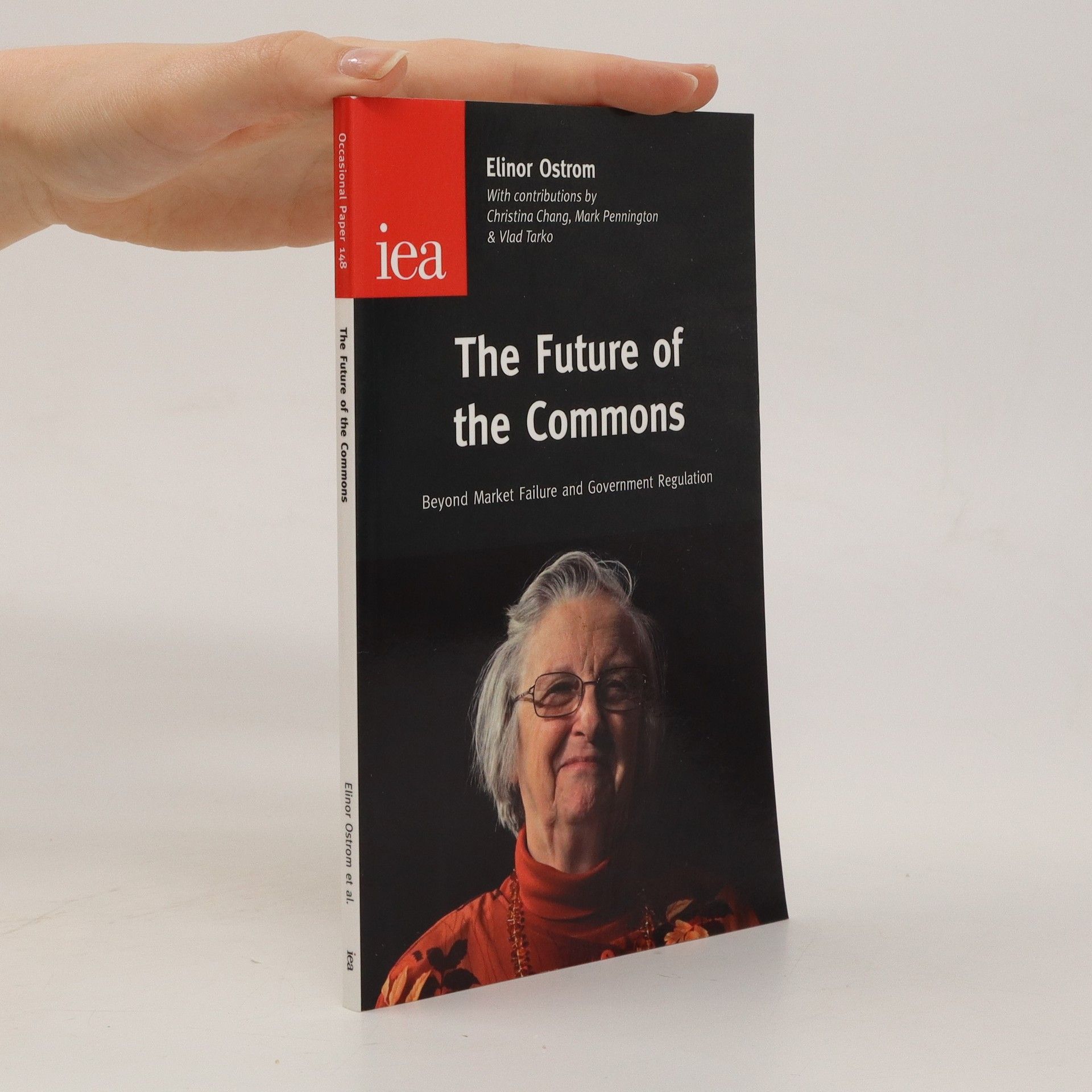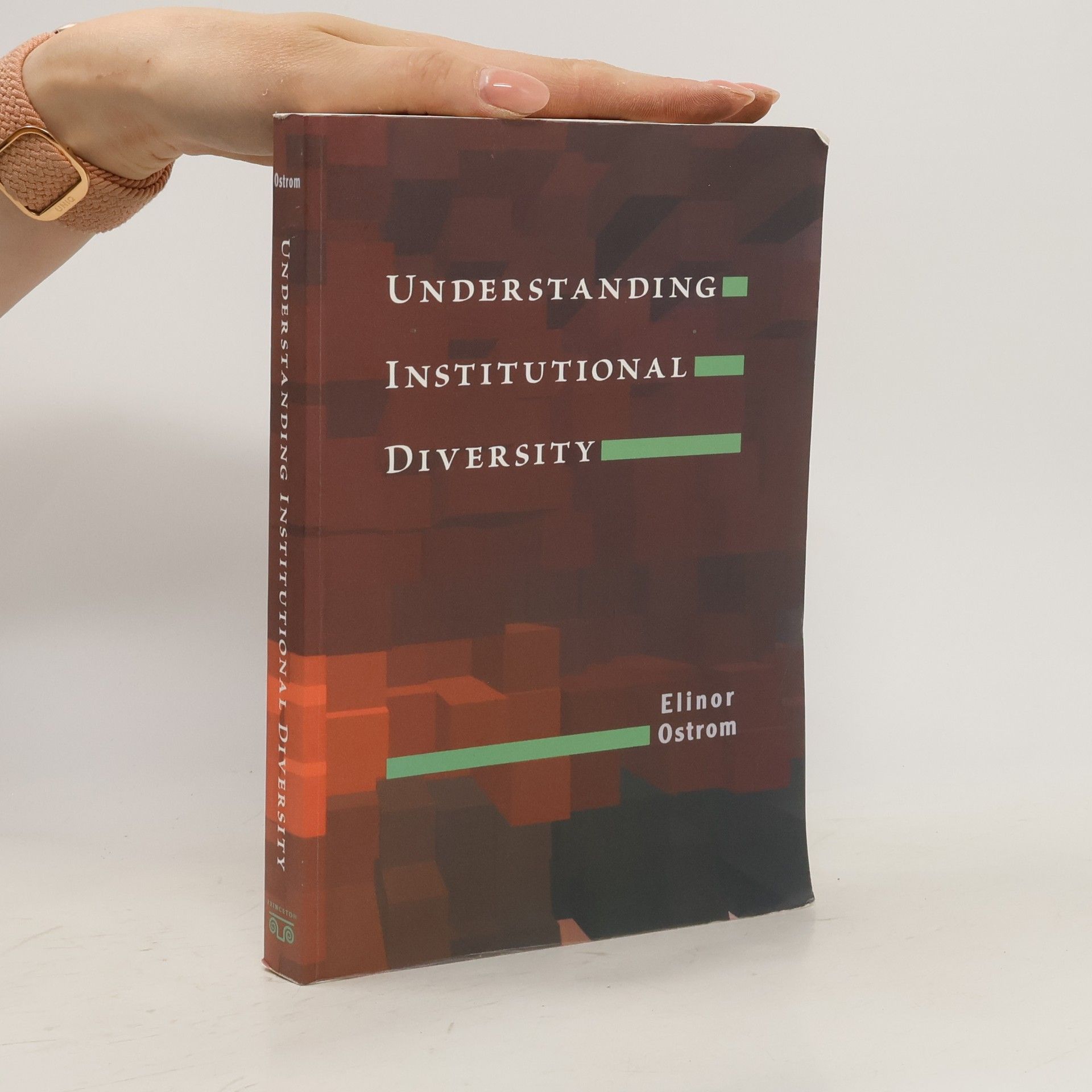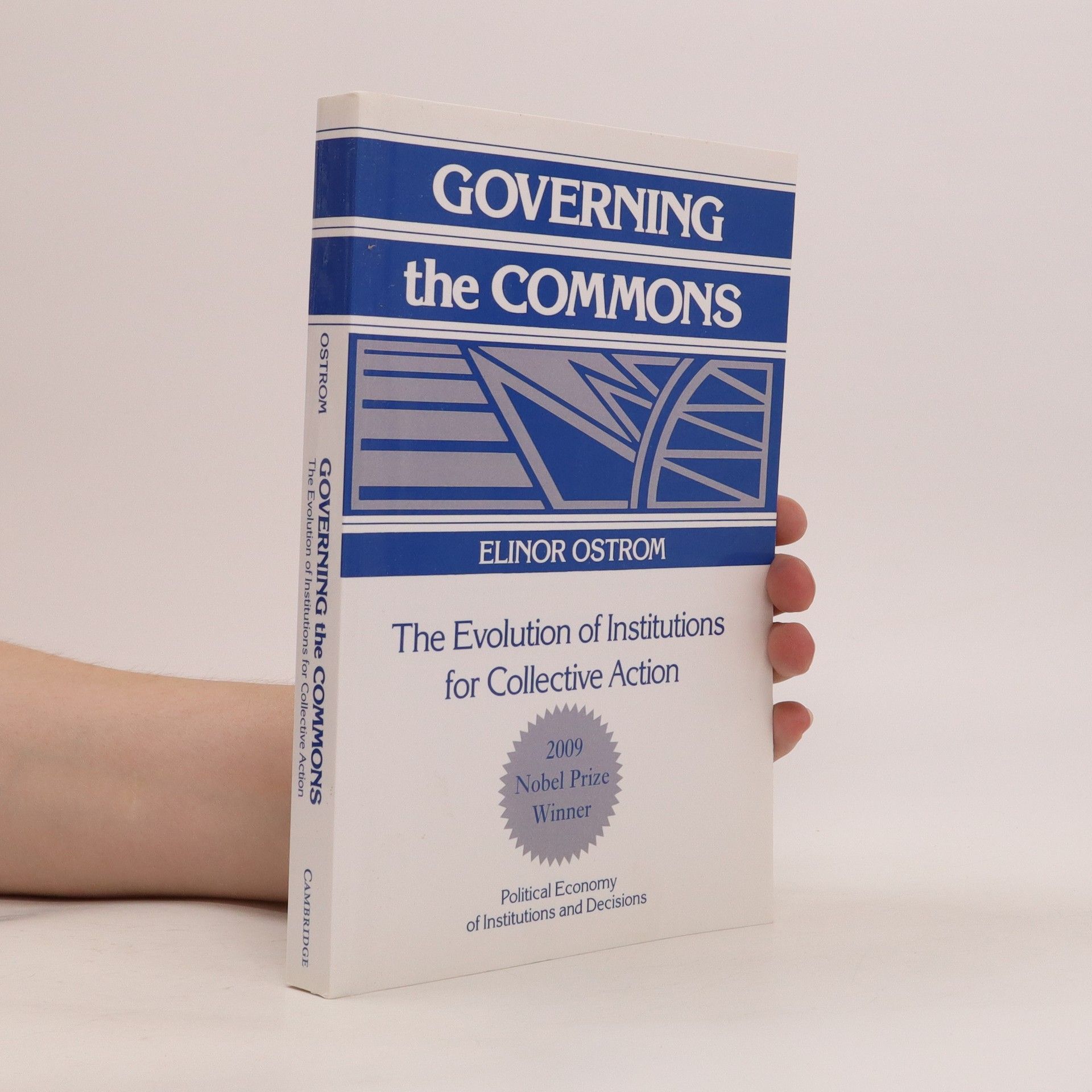Congratulations to Elinor Ostrom, Co-Winner of The Sveriges Riksbank Prize in Economic Sciences in Memory of Alfred Nobel 2009!The governance of natural resources used by many individuals in common is an issue of increasing concern to policy analysts. Both state control and privatization of resources have been advocated, but neither the state nor the market have been uniformly successful in solving common pool resource problems. After critiquing the foundations of policy analysis as applied to natural resources, Elinor Ostrom here provides a unique body of empirical data to explore conditions under which common pool resource problems have been satisfactorily or unsatisfactorily solved. Dr. Ostrom first describes three models most frequently used as the foundation for recommending state or market solutions. She then outlines theoretical and empirical alternatives to these models in order to illustrate the diversity of possible solutions. In the following chapters she uses institutional analysis to examine different ways--both successful and unsuccessful--of governing the commons. In contrast to the proposition of the tragedy of the commons argument, common pool problems sometimes are solved by voluntary organizations rather than by a coercive state. Among the cases considered are communal tenure in meadows and forests, irrigation communities and other water rights, and fisheries.
Elinor Ostrom Livres






Governing the Commons
- 294pages
- 11 heures de lecture
Tackles one of the most enduring and contentious issues of positive political economy: common pool resource management.
Understanding Institutional Diversity
- 376pages
- 14 heures de lecture
The analysis of how institutions are formed, how they operate and change, and how they influence behavior in society has become a major subject of inquiry in politics, sociology, and economics. A leader in applying game theory to the understanding of institutional analysis, Elinor Ostrom provides in this book a coherent method for undertaking the analysis of diverse economic, political, and social institutions. Understanding Institutional Diversity explains the Institutional Analysis and Development (IAD) framework, which enables a scholar to choose the most relevant level of interaction for a particular question. This framework examines the arena within which interactions occur, the rules employed by participants to order relationships, the attributes of a biophysical world that structures and is structured by interactions, and the attributes of a community in which a particular arena is placed. The book explains and illustrates how to use the IAD in the context of both field and experimental studies. Concentrating primarily on the rules aspect of the IAD framework, it provides empirical evidence about the diversity of rules, the calculation process used by participants in changing rules, and the design principles that characterize robust, self-organized resource governance institutions.
This short book provides a brief introduction to the work of the late Elinor Ostrom, 2009 Nobel Laureate in economics. Her work is of vital importance in understanding how we can manage difficult environmental problems without top-down government regulation. As Professor Ostrom suggests, examples such as European Union fisheries illustrate the difficulties of approaching the management of common-pool resources with the mindset that government regulation can be a panacea. The monograph features a lecture given by Elinor Ostrom just before she died, as well as explanations of her work, its relevance and practical examples by other eminent authors. The authors help bring to life this crucial area of economics which is extremely important for all those with an interest in tackling environmental problems related to common-pool resources. This area is often ignored in mainstream economics textbooks, but is of huge practical relevance in both developed and less-developed countries.
Was haben Wasser und Wissen, die Atmosphäre und der öffentliche Raum gemeinsam? Sie gehören zu den für selbstverständlich gehaltenen Voraussetzungen des wirtschaftlichen und sozialen Lebens. Doch so wichtig diese sogenannten Gemeingüter für unser aller Wohlergehen sind, so gering wird ihr Wert geschätzt: Sie werden privatisiert oder zerstört und gehen der Gesellschaft immer mehr verloren. Elinor Ostrom, Trägerin des Wirtschaftsnobelpreises und eine der bedeutendsten Gemeingüter-Forscherinnen, geht dieser Entwicklung am Beispiel der Wälder, der Meere und der Atmosphäre auf den Grund. Dabei begnügt sie sich nicht mit einer Problembeschreibung. Auf Basis jahrzehntelanger Forschung zeigt sie vielmehr auf, wie es gelingen kann, mit gemeinsam genutzten Dingen so umzugehen, dass alle Menschen ihre Bedürfnisse langfristig befriedigen können. Dazu gilt es vor allem, Kreativität zu wecken und Kommunikation zu fördern. Wenn man die Menschen an der Lösung der Probleme beteiligt, die ihr unmittelbares Leben betreffen, wird beides gelingen.